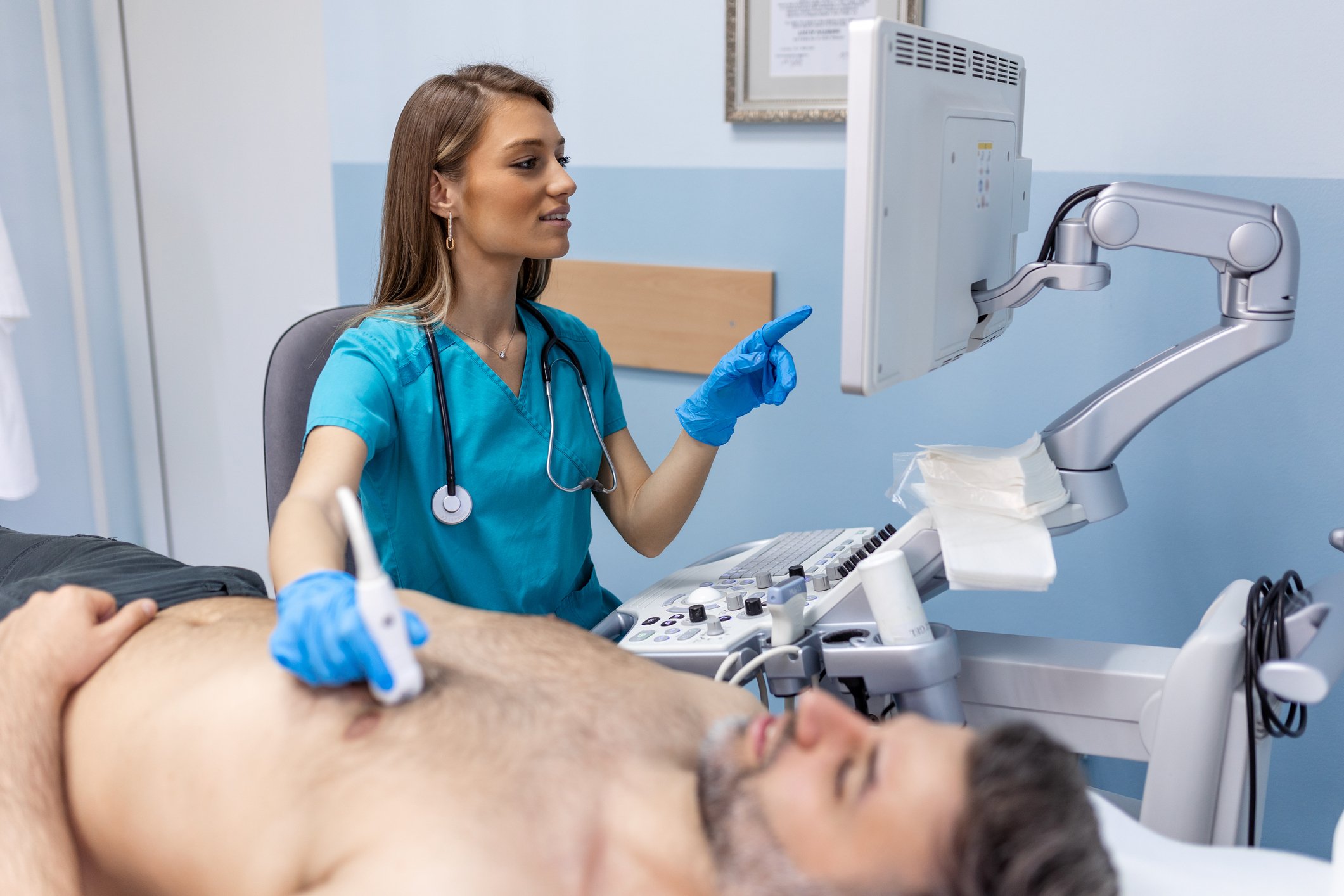
Private cardiac tests
We make use of relationships built up over years, working with only the safest diagnostic services in Kent and South London to deliver high quality information about your heart.
-

Cardiac blood tests
We can use results of tests you’ve already had, or arrange for blood to be taken at a convenient hospital close to your home.
-

ECG (electrocardiogram)
We use a range of ECG tests to examine the electrics of the heart, from “snap shot” 10 second recordings through exercise ECG and monitors that record up to 14 days of ECG data.
-

Echocardiogram
Echocardiography (“echo”) uses ultrasound to image the heart. We use different echo tests including stress and rest scans to get information on cardiac function.
-

Ambulatory BP
When blood pressure measured in clinic is borderline, or erratic blood pressure control is suspected, we can use portable BP monitors to get a full 24hr profile of blood pressure measurements.
-

Cardiac MRI
Magnetic resonance imaging (MRI) is a powerful tool to examine some parts of heart structure and function not visible on echo scans. Not all hospitals perform cardiac MRI, but our patients have access to scanners both in Kent and in London.
-

Coronary angiogram
Angiograms examine the blood supply of the heart. These can be done either invasively, using wires and tubes passed up the blood vessels, or non-invasively using a CT scanner. Our clinics have access to both techniques.
-

Sleep studies
Obstructive sleep apnoea is a medical condition which disrupts sleep and can significantly increase risk of high blood pressure, diabetes, stroke and heart attack. Our clinics use both home and hospital based sleep tests for this condition.
-

Tilt table and autonomic tests
Tilt table, active stand and active lean tests can be used to diagnose autonomic disorders such as PoTS, reflex syncope and orthostatic intolerance. We tailor use of these tests to individual patients’ needs.
We understand that many patients will have a clear idea of what tests they need. However there is a dazzling array of investigations available for most symptoms and we find that it is generally best to have a consultation with a specialist before planning further investigations.

